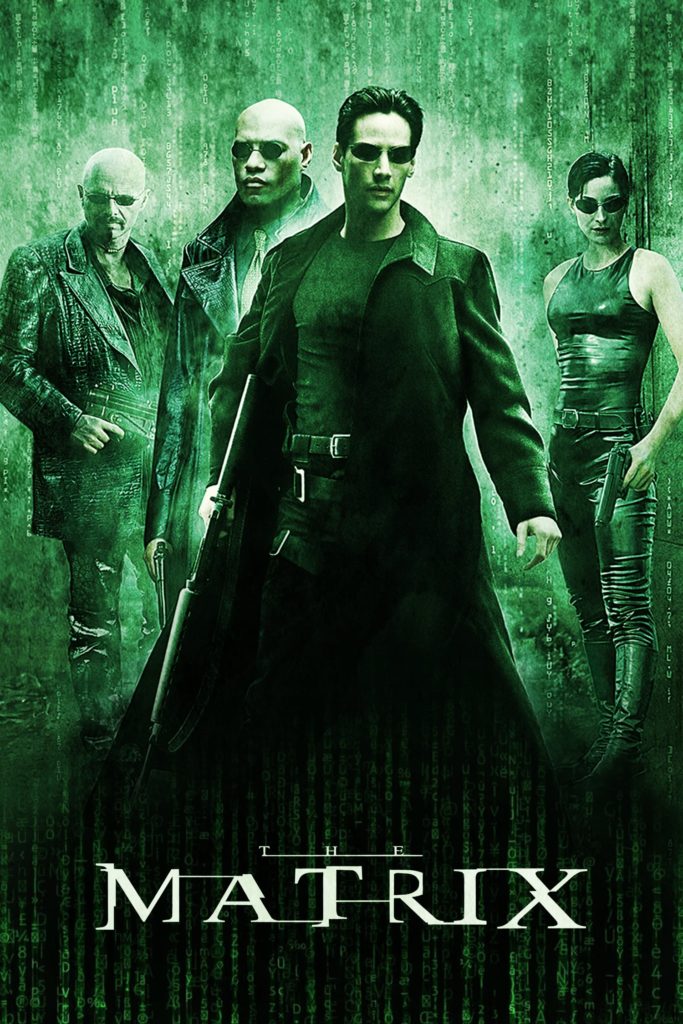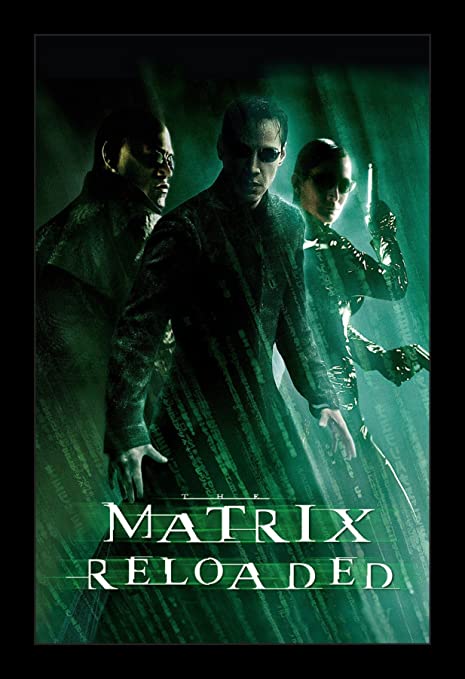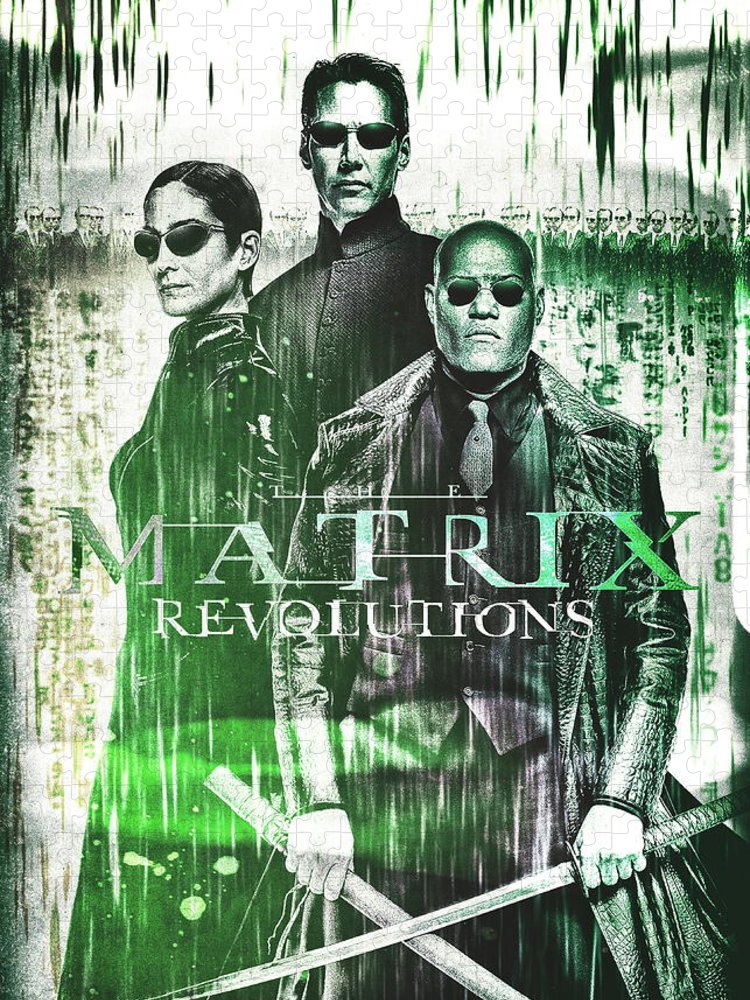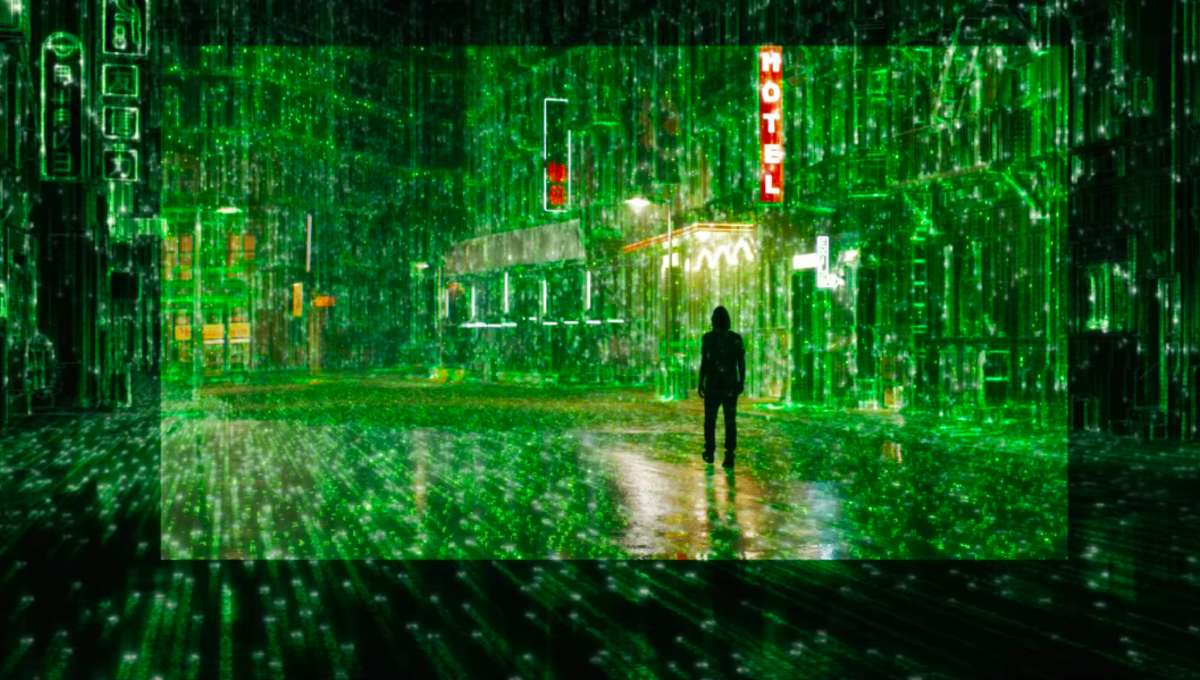With The Matrix: Resurrections coming in December, I figured it was a good time to re-watch the original trilogy. I loved the first movie ever since it first came out back in 1999, and have re-watched it many times. But it’s probably been a good 10-15 years since I re-watched Reloaded or Revolutions. I always felt that the sequels being as sub-par as they were ended up hurting the first movie in retrospect. Trading in the fairly straightforward narrative with a bunch of pseudo-philosophy didn’t work very well for me at 20 years-old, but I figured it might work better for 40 year-old me. Here’s what I found.

The Matrix – Still an all-time sci-fi-action classic. We’ve seen the enhanced fight scene countless times since 1999 in action films, and especially in comic book adaptations. Sure, some of the fight choreography comes off as a little stilted and over-planned when held up against some of the extremely high level stuff that’s made it to the mainstream since then. Also, the lobby shoot-out featuring our heroes wearing long, black coats and killing without remorse hits differently after witnessing the tragedy and horror of mass shootings far too many times in this country. But everything in this movie else just works.
The story of a beautiful stranger leading you out of the doldrums of your underwhelming life. A wise mage teaching you to see the world in an exciting new way. The idea that you are the Chosen One who can save the world. Practically-speaking, most of the effects still hold up. Whatever CGI that was used was well-blended into everything else happening on-screen. And everything from Neo finally choosing to stand and fight Agent Smith – an unstoppable opponent – in the subway, through Neo himself becoming an even more unstoppable opponent in the end still resonates, and gets the adrenaline pumping. Neo flying into the sky after warning the machines that he was going to destroy the Matrix from the inside is still a hell of a mic drop.

The Matrix: Reloaded – This was actually quite a bit better than I’d remembered it being. Yes, the Wachowskis’ started laying in the whole philosophical free-will-vs-determinism more heavily, but not enough to really sidetrack things. The story still moves along ay a nice pace, and the big action sequences still work a lot more than they don’t. However, it’s when they don’t work that you start to see things stretching at the seams. The fight between Neo and the army of Agent Smiths starts out awesome but, about halfway through the fight, the CGI gets much heavier, and clumsier. Neo’s and the Smiths’ clothing, and movements look very Playstation 1 quality, while their faces take a detour into the Uncanny Valley. This is still a cool scene, but the bad CGI took me out of the moment more than anything in the first film did.
The big car chase is the other major set-piece, and it is also mostly awesome. The phasing ability of the Twins – the Merovingian’s main henchmen – are utilized very cleverly. And it was great to see Morpheus have his own chance to take out an Agent after taking a beating by Smith in the first film. This scene also did a good job of showing how Neo’s growing belief in himself, leads other to believe in themselves just as strongly. But then the bad CGI strikes again, most egregiously when the poorly-rendered Agent jumps – again in super slow motion – onto a car like it’s a trampoline, and launches himself onto the top of a semi-truck to fight Morpheus. One could lay the blame on the state of CGI in 2003, which was clearly nowhere near as advanced as it is in 2021, but its issues could have been hidden better by using it in a more darkened setting, and not in mega-slow-motion.
The bigger problem with Reloaded was introducing a whole new cast of character in Zion, and trying to make the audience care about them. Frankly, the real world is the least interesting aspect of this series, and we’ll discuss how that hurt Revolutions even more when we get there. Maybe they could have put Morpheus on the Council to makes us care more about that aspect of things, but then you’re benching your best character in hopes of having him elevate the weaker scenes. I’m sure there’s a draft of the script where Morpheus plays exactly that role, but it was probably better to end up where they did.
To my surprise, though, Reloaded worked more than it didn’t. Even the droning talking heads scene where the Architect drop a ton of exposition explaining that Neo is only the latest in a long line of “Chosen Ones” and that the machines have destroyed Zion several times already in the past before “resetting” the world was more interesting to me this time around. In part because Neo managing to fry the Squidies at the end was very effective in raising his power level to the point where he could conceivably take out the Source and win the war, and end the cycle, once and for all.

The Matrix: Revolutions – This is where is really all went wrong for me. The failures of Revolutions actually diminished my opinion of Reloaded without me even realizing it. I mentioned the real world being the least interesting thing about the previous film. The first major problem is that about 75% of Revolutions’ run time takes place in the real world. Also, the inhabitants of Zion still never moved the needle for me, even having been introduced to most of them in Reloaded. The Squidies’ attack on Zion, and the humans’ using mechs with giant machine guns is a pretty cool action scene that ends up hitting the same one-note for most of the third act, which makes it feel weirdly static after a couple of cuts back to it.
But the real deal-breaker for me is still the way things turn out for Neo and the Source. The Wachowskis made something of an attempt to humanize (for lack of a better term) the AI in the Matrix by introducing a family of two programs who apparently had a baby program together. It lasted for all of one undercooked scene, and did not manage to form any emotional connection between myself and the machines.
Neo goes to the Machine City to seek out the Source and end the war. Trinity travel with him, only to be killed when their hovercraft crashes – which is amongst the least cool ways to kill off an iconic character. Neo then reaches the Source and offers a truce. Neo offers to take out Smith, who has grown into a virus that the matrix cannot cleanse itself of, in-exchange for leaving Zion alone. The Source agrees, and Neo does his part by seemingly sacrificing himself to stop Smith and reset the Matrix. At that point, the Source calls off its attack on Zion. Yes, Zion was under siege at the time, so Neo had to do what he could to stop that. But, to me, this was like a person making a peace treaty with a bullet.
Aside from the five minutes spent with the Program Family, the machines’ whole reason for existing seems to be hunting, enslaving, and devouring humankind. My problem here is that I don’t see how there could ever be lasting peace between two parties when one party retains all of the power, and that party actually needs to consume the other party to ensure its continued survival. The machines wiped out Zion a number of times before and, aside from the one job that they needed Neo to do for them, they could still wipe out the rest of humankind at pretty much any time they feel it is necessary. The only thing keeping this from happening is the assurance of an Artificial Intelligence for whom, by-definition, morals and ethics do not exist.
I ended up feeling the same way this time as I did 15 years ago: That, when Neo came face-to-“face” with the Source, he should have used the new power he demonstrated at the end of Reloaded to destroy the Source. Presumably, this would lead to the collapse of Machine City, the widespread deactivation of the machines, the destruction of the matrix, and the only real chance humanity would have to escape enslavement and re-claim the world.
I’ll be watching The Matrix: Resurrections when it hits theaters in December. I’m hoping it can offer a better resolution than Revolutions did, but I’m not overly-confident that it will. Revolutions was bad and, sadly, it being bad defeats the purpose of watching Reloaded since they are essentially two parts of the same film. But that first movie, The Matrix, is still worth revisiting again and again. Maybe, if we’re lucky, Resurrections can live up to its title, and earn Reloaded and Revolutions a second chance at redemption.
